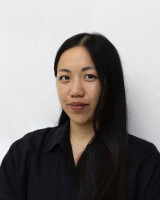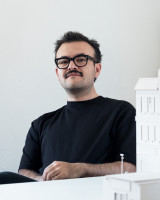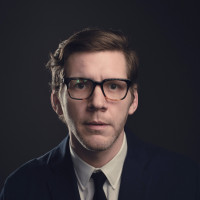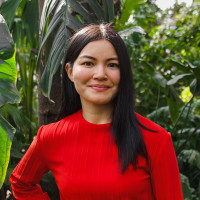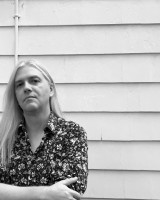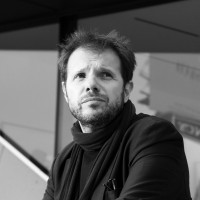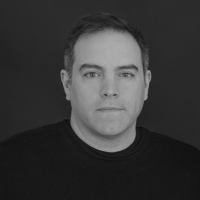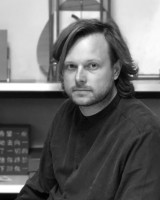FACULTY RESEARCH
The following list comprises of Syracuse University School of Architecture faculty and their expertise / research focus. Faculty pages and office websites are all hyperlinks which provide additional information, as most faculty work across spectrums in their research and within their pedagogical approaches.
The (DR) designates which professors will be conducting a ‘Directed Research’ studio, as the culminating capstone semester, in the MArch program this coming Spring.
Design / Fabrication
- Greg Corso, SPORTS
- Roger Hubeli, APTUM
- Molly Hunker, SPORTS
- Julie Larsen, Graduate Chair, APTUM, (DR)
- Daekwon Park, Undergraduate Chair, MATR (DR)
Design / Technology / Materials
- Amber Bartosh
- Junho Chun
- Bess Krietemeyer, IDVL
- Brian Lonsway, Thinklab
- Kiana Memaran Dadgar (DR)
- Emily Pellicano (DR)
- Daniele Profeta, A/P Practice
- Nina Wilson
Design & Design/Build
- Omar Ali, NO OFFICE
- Hannibal Newsom (DR)
- Marcos Parga, MAPAa
- Edgar Rodríguez, Operadora
- Richard Rosa
- Tim Stenson (DR)
- Nathan Williams
Advocacy
- Lori Brown, FAIA
- Yutaka Sho, GA Collaborative
Landscape / Urbanism
- Jess Myers
- Ted Brown
- Bing Bu, Director of Three Cities Asia Study Abroad Program
- Larry Davis
- Liz Kamell
- Fei Wang, Program Coordinator of MS Program
History / Theory
- Susan Henderson
- Jean-François Bédard
- Lawrence Chua
- Britt Eversole (DR)
- Joseph Godlewski
- Mark Linder (DR)
- Kyle Miller (AD)
- Michael Speaks, Dean
- Abingo Wu
LABS & DESIGN OFFICES
A/P Practice
A/P PRACTICE, led by Daniele Profeta and his partner Maya Alam, is the collaborative partnership of with work ranging from experimenting with contemporary imaging & surveying technologies to small scale public installations & built sites of speculative re-use. Weaving existing conditions with contemporary manufacturing technologies and aesthetics, engaging with the heterogeneous, often contradictory set of evidence of a given context, we focus on constructing inclusive interventions from the screen to the built environment. Leveraging new media and its effects on perception, our projects move between textures, models, videos, buildings and installations to recalibrate our agency across physical and digital spaces.
APTUM
APTUM, led by Roger Hubeli and Julie Larsen, focuses on the synthesis of digital fabrication, tectonics, and environmental systems as methods to speculate on future formal and spatial expressions of architectural elements to question material properties and behaviors in order to make the process of making instrumental to form-making. The team poses critical questions that lead to new approaches for architectural design; unpacking the relationship between materials, methods, and the environment by not designing for existing materials, but designing beyond them. As a material practice, we privilege collaboration with industry partner, experimentation, and prototyping, as a way to approach our projects with what we refer to as a ‘counterfactual world’ for materials; meaning we explore the built environment through the lens of what it would look like if we changed the base assumptions of those materials. Essentially, we know what the ‘facts’ or ‘characteristics’ are of a particular matter, and we aim to question what it could be if we were not bound by that reality. By using material prototyping and speculative drawings, the results reflect the relationship and perception between materials, forms, and the environment.
GA Collaborative
General Architecture Collaborative, led by Yutaka Sho and Jamie Setzler, creates inclusive, thoughtfully designed projects that sustain communities and the environment. They are a 501c-3 nonprofit in the United States and a social enterprise in Rwanda. They are an award winning nonprofit design group with expertise in architecture landscape architecture and strategic design. They have a different approach to practice; working with individuals, organizations, institutions, communities, and industries dedicated to the creation of a more equitable and just world through design, research, and advocacy. Their work is focused on designing housing healthcare educational and cultural projects that serve underrepresented and developing communities which use the entire project life cycle for research to construction to create thoughtful and inclusive processes. Their goal is to bring together individuals and organizations interested in contributing to innovative impactful and empowering design projects that build sustainable and socially equitable spaces with communities most often overlooked by contemporary design practices and global development.
Interactive Design and Visualization Lab (IDVL)
The IDVL, led by Bess Krietemeyer and Amber Bartosh, is an immersive design environment for simulating the environmental effects and multi-user experience of dynamically responsive building envelope systems and architectural spaces. The lab supports visualization techniques ranging from large digital projections to immersive virtual reality technologies in order to experiment with new computational tools that support the design and development of high-performance building materials, systems and spaces. The custom-programmed design environment consists of motion and infrared sensors for gestural user interaction, digitally projected surfaces for full-scale visualizations, and analysis software for daylighting and energy simulations.
MAPAa
MAPAa, led by Marcos Parga, is an architecture and design practice working on projects between the US (Syracuse, NY) and Spain (Madrid). The practice seeks out an expanded role for architecture by engaging buildings objects interiors and speculative research. The studio’s most recent work leverages Parga’s interest in addressing pressing issues like social equality awareness and agency through the design of new typologies of domestic environments that question preconceived ideas about privacy and ownership.
The office integrates a floating population of multidisciplinary professionals mainly dedicated to develop architectural projects but also those that have to do with interior design product design and publishing.
MATERIAL ARCHI-TECHTONIC RESEARCH (MATR) LAB
The MATR lab, led by Daekwon Park, focuses on developing multiscale material systems that mediate light, heat, and air in novel ways. Located within CoE building, the lab space is configured for fabricating proof-of-concept prototypes and for conducting preliminary performance tests. It is outfitted with 3d printers, a desktop CNC machine, foam cutter, and ceramic extruder, for fabrication; and a range of sensors, data loggers, and other equipment for physical testing.
SPORTS
SPORTS is the award-winning multidisciplinary architecture and design collaborative of Molly Hunker and Greg Corso. Their work focuses on creating compelling spaces that are catalysts for social activities. They approach design in a playful way, by balancing rigor and research with amusement and curiosity, with the ambition to generate fresh and unexpected experiences of the built environment. Much of their work has been public interventions that leverage the possibility for simple, high-economy design gestures to have significant urban and community impacts. SPORTS has been highlighted as a “Firm to Watch” by Architectural Record and as “Next Progressives” by Architect Magazine. SPORTS is the recipient of multiple “Best of Design” Awards from Architect’s Newspaper and a League Prize from the Architectural League of New York.
Thinklab
Deep transdisciplinary thinking challenges many presumptions of straightforward multi-disciplinary collaboration. Situations are mapped in lieu of problems being formed, expertise is networked in lieu of collaborative teams being defined, and systemic interventions are proposed in lieu of solutions being offered. This requires unique collaborative methods, techniques of creative and critical thinking, and tools and systems for visualization and intervention. Thinklab supports the research, design, and prototyping of hybrid media environments in this context. The lab offers tools and techniques that enable the productive engagement of highly complex situations in the area of learning support, collaboration, and exchange, and has served as host to projects in the areas of experience and interface design, learning environments, augmented reality, and computational simulation.

